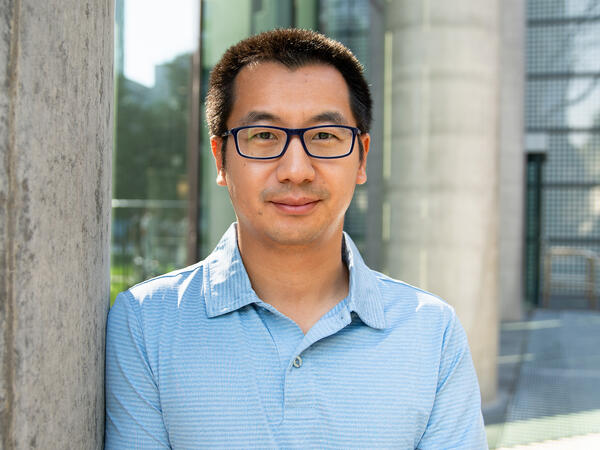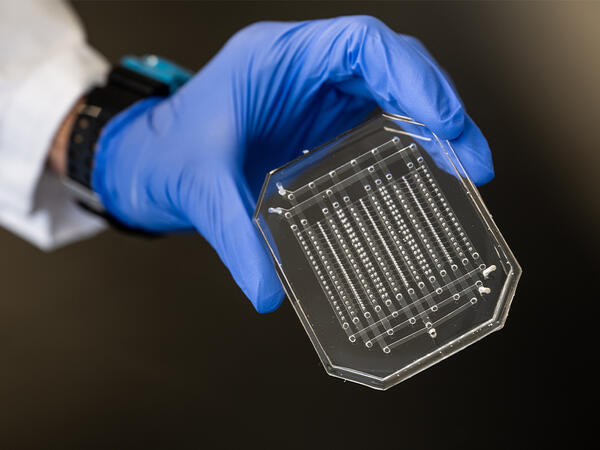
What is your area of research?
Yufeng Zhao’s research focuses on the development of efficient protein engineering methods and applications of functional proteins in pharmaceutical science, cell biology and disease diagnostics. Particularly, he designs fluorescent protein-based biosensors to track various analytes (e.g. ions and metabolites) in live cells for elucidating disease mechanisms and advancing drug development. He also develops high-throughput screening platforms to accelerate the engineering of functional proteins including fluorescent proteins, enzymes, and antibodies.
What is your primary research challenge?
Proteins are versatile biomolecules, serving not only as the essential building blocks of life but also as powerful tools harnessed for a myriad of functions, including biosynthesis and disease treatment, benefiting people’s daily life. It is widely known that proteins are chains of hundreds or thousands of amino acids, but efficient design and optimization of a protein’s function has been a challenge due to the great complexity of the molecule. While emerging artificial intelligence (AI) is offering new opportunities, large scale experimental datasets are highly desired to train the model and improve the accuracy of prediction. Existing experimental approaches relying on manual operations are time-consuming and generate insufficient data, which restricts the power of AI-based protein design.
What is your proposed solution to your research challenge?
Yufeng and the team aim to design high-throughput platforms based on microfluidic and robotic technologies to measure the functionalities of protein libraries that can generate more than 1000 times larger datasets than traditional manual approaches. The team will leverage the platforms together with modern sequencing technologies to explore fitness landscape (genotype-phenotype) of a variety of proteins such as fluorescent proteins, enzymes and antibodies. AI models will be trained with the datasets from the iterative screening process to predict protein functions for efficient protein engineering.
What is your impact to date?
Yufeng has designed a microfluidic fluorescent activated cell sorter (µFACS) with advanced multi-point detection system to accelerate biosensor engineering. He has developed and co-developed multiple genetically encoded fluorescent and bioluminescent biosensors, enabling the visualization of dynamic biochemical events (such as Ca2+ signaling and citrate metabolism) in live cells at single-cell resolution. He pioneered a method for quantifying intracellular citrate levels in mammalian cells, utilizing the innovative citrate biosensor, Citron1, that he developed. These biosensors, distributed to researchers worldwide, provide indispensable resources to the scientific community for studying fundamental cell biology and disease mechanisms in cultured cell and animal models.
Keywords
Microfluidics, protein engineering, synthetic biology, biosensors, fluorescence microscopy, bioluminescence
Notable Awards
- Stanford University School of Medicine Dean's Postdoctoral Fellowship
- The Chemical and Biological Microsystems Society (CBMS) Student/Young Researcher Travel Grant
- Alberta Innovates Technology Futures (AITF) Graduate Student Scholarship
